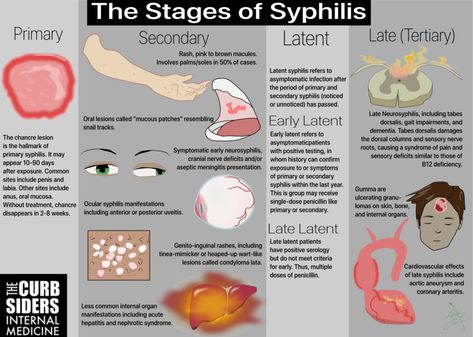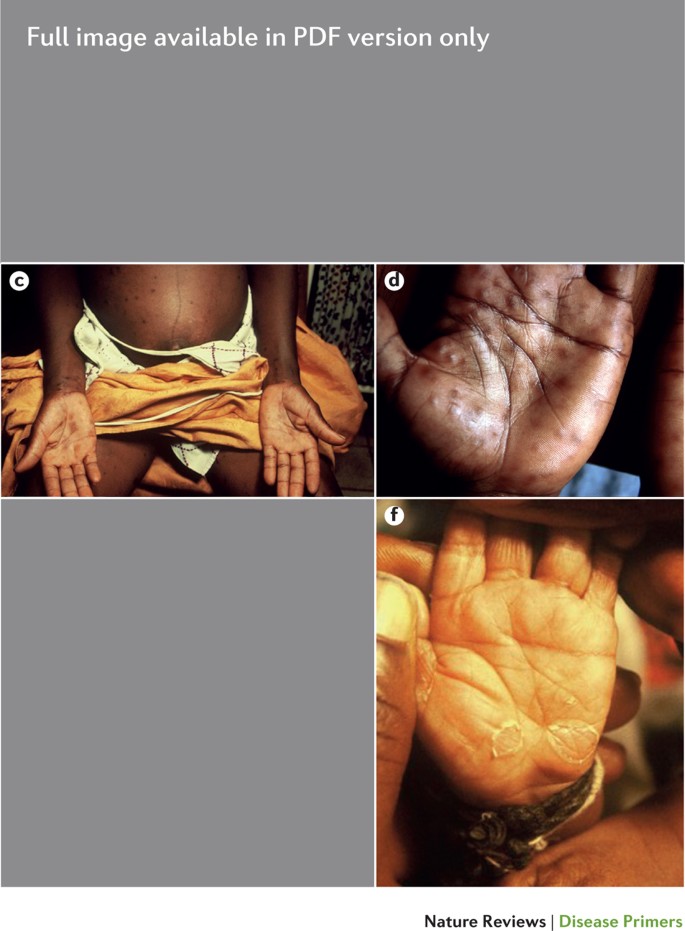
The outlook for syphilis is generally good, but patients who have delayed treatment or fail to complete treatment may develop serious health problems. A 2005 seminar by Dr. Edward W. Hook, 3rd, addressed this topic and suggested a new protocol for diagnosing syphilis. This protocol includes a discussion of risk factors and a discussion of the treatment of sex partners. A patient who is pregnant and delivers a stillborn baby should be tested for syphilis during pregnancy.
A healthcare professional will perform a blood test to test for syphilis. It won’t hurt, and it is not painful. The healthcare worker may also perform other tests, including examining the mouth, throat, and genital area. A swab will be taken from a sore on the skin. Most people who have syphilis are not aware that they are infected. It is not uncommon for someone who’s experienced sexual activity to contract it.
Symptoms of syphilis include a painful ulcer on the skin that often resolves on its own. An infected individual with untreated syphilis may not be aware of the infection, and the condition can progress into tertiary syphilis without symptoms. Early treatment is essential to avoid serious health problems and to make a full recovery. However, this can be challenging.
The symptoms of syphilis can range from a simple blister to a full-blown ulcer. Some individuals experience fever and chills as a reaction to the medications. These symptoms may also include anal canal pain, vaginal pain, and headache. It’s important to note that there’s a risk that a person who’s already infected with syphilis will suffer a relapse. It’s therefore essential to get proper treatment for the condition.
In some cases, syphilis may be caused by an HIV infection. Symptoms of syphilis may be subtle or obvious. It is important to note that the duration of the disease depends on the stage it has reached in its course. In some cases, it is very early, while others may show no symptoms at all. But it’s important to note that, if it has already progressed to a late stage, the disease can be highly contagious.
In rare cases, syphilis may have a fatal outcome. Infections of the central nervous system can result in cranial nerve palsies, spinal cord inflammation, and dementia. Symptoms of syphilis can be life-threatening, and it can be life-threatening if left untreated. Even after treating the syphilis, there are still many risks for relapse.

Approximately half of syphilis patients will have lymphadenopathy. Symptoms of lymphadenopathy are firm and can occur anywhere in the body. Some people will experience ulcers in the anal canal or cervix, while others will develop more advanced symptoms. Acute meningitis can occur in the most difficult case, and there is no cure for syphilis in this stage.
If you have syphilis caused by sex, you may be able to pass the bacteria on to another person. Some people are unaware of having syphilis, and some do not show symptoms. For them, the disease can lead to severe problems, even years after the initial infection. If you suspect that you have syphilis, the first thing to do is consult a doctor. They will likely prescribe a penicillin-based treatment.
The first symptoms of syphilis include a painful sore and elastic lymph nodes. The disease can also affect children. The infection is a serious infection and syphilis must be treated promptly. As a result, it’s important to get tested regularly for STDs to make sure you don’t have the disease. If you have a sexual history, you can take care of it right away.
Fortunately, syphilis is curable, and early diagnosis and treatment is essential to prevent long-term health problems. Talking to your healthcare provider about your sexual history is a vital step in staying healthy. They can assess your risk and suggest a prevention plan. The treatment recommendations on site https://productossaludes.com/
will also help you stay healthy and prevent the spread of syphilis. They will also help you identify risk factors and discuss the best course of treatment.
